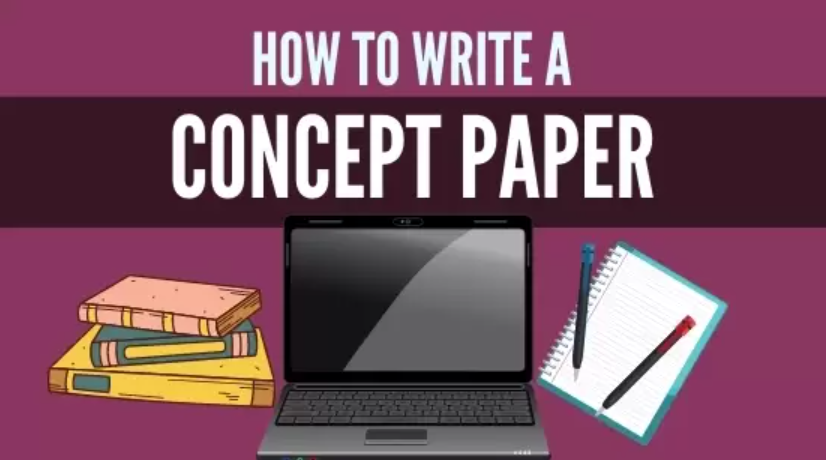A concept paper is your pitch, your elevator speech, your chance to spark interest in a project before you even begin. It’s a concise and compelling document that outlines your idea, its potential impact, and why it deserves attention and funding.
But writing a concept paper is more than just summarizing your idea. It’s about crafting a persuasive narrative that captivates your audience and leaves them eager to learn more.
The Power of Concept Paper Writing
The importance of strong concept paper writing cannot be overstated. It’s the first step in securing grants, attracting collaborators, and gaining recognition for your work. It’s the foundation on which your project will be built, and a poorly written paper can doom even the most brilliant of ideas.
The Essential Elements of a Concept Paper
A compelling concept paper needs to answer several key questions:
1. What’s the problem?
Start by defining the problem you’re addressing. This sets the stage for your solution and highlights the need for your project. Be specific and avoid vague generalities. Use data, statistics, or real-life examples to illustrate the problem’s impact.
2. What’s your solution?
Present your idea as the solution to the problem. Clearly articulate what you’re proposing and why it’s a viable answer. Emphasize the unique value proposition of your project and explain how it differs from existing solutions.
3. Who will benefit?
Highlight the potential beneficiaries of your project. Who will be directly impacted by your work? How will their lives be improved? Focus on the positive outcomes and the tangible benefits of your project.
4. What resources do you need?
Be transparent about the resources needed to execute your project. List the necessary materials, equipment, personnel, and funding requirements. Provide a realistic budget and explain how the requested funds will be used efficiently.
5. What’s your timeline?
Outline a clear and achievable timeline for your project. Include key milestones and deliverables, giving your audience a sense of progress and expected outcomes.
Mastering the Art of Concept Paper Writing
1. Know Your Audience: Before you even begin concept paper writing, consider your target audience. Who are you trying to convince? Tailoring your language, tone, and focus to their specific needs and interests is crucial.
2. Keep It Concise: A concept paper is a short document, typically 2-5 pages long. Every sentence must count. Avoid unnecessary jargon, repetition, or rambling. Get to the point quickly and efficiently.
3. Tell a Story: While presenting facts and figures is essential, don’t forget the power of storytelling. Engage your audience with a narrative that makes them feel invested in your project. Paint a picture of the impact you will create and how it will change lives.
4. Highlight the Impact: The impact of your project should be the central theme of your paper. Emphasize the positive change your work will bring, whether it’s scientific breakthroughs, social improvements, or economic benefits.
5. Don’t Be Afraid to Edit: Concept paper writing is an iterative process. Don’t be afraid to edit, revise, and refine your document until it’s polished and persuasive. Get feedback from colleagues, mentors, or experts in your field.
6. Visualize Your Ideas: Images, charts, and diagrams can be powerful tools to support your arguments and make your concept paper writing more engaging.
Crafting a Winning Concept Paper
- Start Strong: Your introduction should capture attention and clearly state the problem and solution.
- Develop a Strong Argument: Use clear, concise language and provide evidence to support your claims.
- Emphasize the Uniqueness: Highlight what sets your project apart from the competition.
- Conclude With a Call to Action: End with a compelling call to action, leaving your audience wanting to learn more and support your work.
Example Concept Paper: Fighting Food Waste
Problem: Food waste is a significant global issue, contributing to environmental degradation and food insecurity. Millions of tons of edible food are thrown away each year, wasting resources and impacting communities.
Solution: This project proposes to develop a mobile application that connects businesses with organizations dedicated to fighting food waste. The app will provide real-time data on available food surplus, facilitating efficient distribution to those in need.
Benefits: This solution will reduce food waste, improve food security, and create a more sustainable food system. The app will benefit businesses, community organizations, and individuals struggling with food insecurity.
Resources: The project requires funding for app development, marketing, and staff. The budget will be allocated efficiently, maximizing impact while ensuring sustainability.
Timeline: The project will be implemented in phases, with a launch date within 12 months. The initial focus will be on partnering with local businesses and non-profit organizations.
Impact: This project has the potential to significantly impact food waste reduction and improve food security in our community. It will promote a more sustainable food system and create a positive social impact.
Conclusion: This project presents a unique and impactful solution to the problem of food waste. With your support, we can create a more sustainable and equitable food system for everyone.
Remember, a compelling concept paper is the key to unlocking the potential of your ideas. Invest the time and effort in concept paper writing and watch your project flourish!
